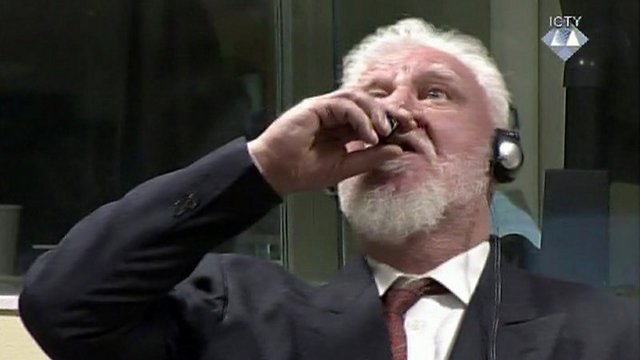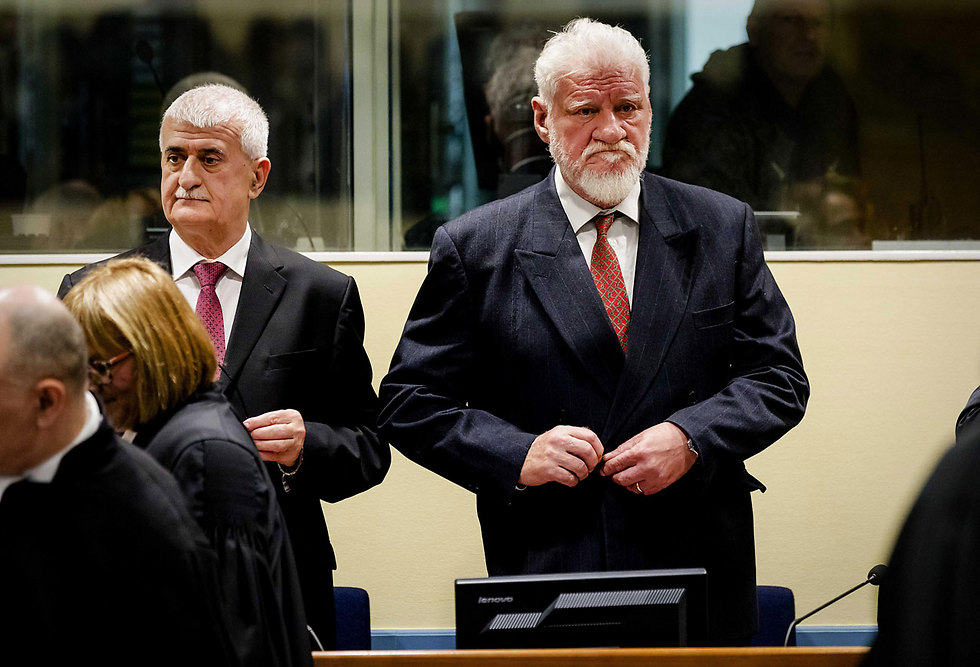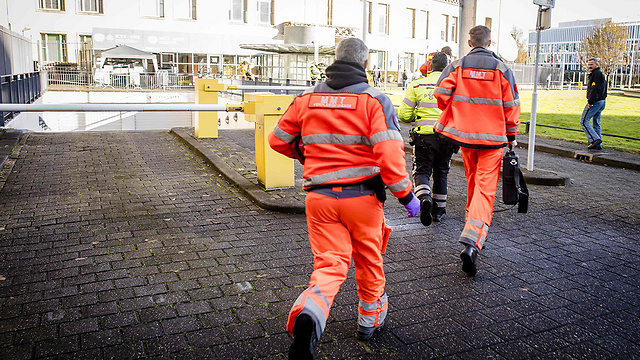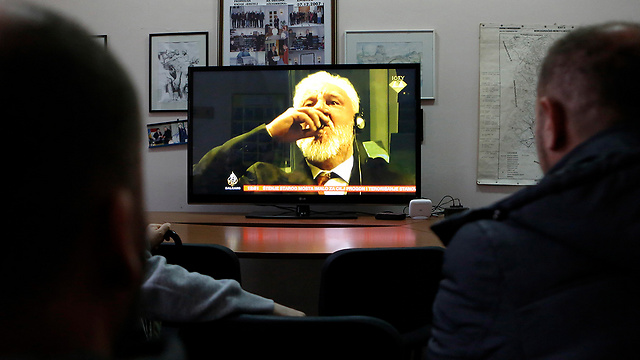
War crimes convict dies after drinking poison in UN courtroom
The wartime commander of Bosnian Croat forces, Slobodan Praljak, dies after drinking poison seconds after UN judges turned down his appeal against a 20-year sentence for war crimes against Bosnian Muslims.
A convicted Croat war criminal has died after swallowing what he said was poison seconds after a United Nations judge confirmed his 20-year sentence for involvement in crimes during the Bosnian war of the 1990s, Croatian state TV reported Wednesday.
In a stunning end to the final case at the UN’s International Criminal Tribunal for the former Yugoslavia, Slobodan Praljak yelled, “I am not a war criminal!” and appeared to drink from a small bottle.
The Croatian prime minister has confirmed the death of a convicted Bosnian Croat war criminal, offering condolences to the man's family.
Andrej Plenkovic said at a press conference that "we have all unfortunately witnessed his act by which he took his own life."
Plenkovic says Slobodan Praljak's action reflects the "deep moral injustice" done to the six Bosnian Croats whose guilty verdicts were upheld by the UN.
The courtroom where the dramatic scene unfolded was sealed off and Presiding Judge Carmel Agius said that it was now a “crime scene” so that Dutch police could investigate. Police in The Hague declined comment on the case.
Croatian state TV reported that President Kolinda Grabar Kitarovic decided to cut short an official visit to Iceland and the government was holding an emergency session.
Praljak, 72, had been in the tribunal’s custody ahead of the hearing and it was not clear how he could have got access to poison or how he apparently managed to smuggle it into the tightly guarded courtroom.
Agius had overturned some of Praljak’s convictions but upheld others and left his sentence unchanged. Praljak, standing to listen to the judgment, then produced what appeared to be a small bottle, threw back his head and seemed to pour something into his mouth.
Agius shut down the hearing and cleared the courtroom.
The hearing later resumed and, ultimately, all six Croats charged in the case had their sentences, ranging from 25 to 10 years, confirmed. Judges overturned some of their 2013 convictions, but left many unchanged.
The other suspects showed no emotion as Agius reconfirmed their sentences for their involvement in a campaign to drive Muslims out of a would-be Bosnian Croat ministate in Bosnia in the early 1990s.
Dutch police, an ambulance and a fire truck quickly arrived outside the court’s headquarters and emergency service workers, some of them wearing helmets and with oxygen tanks on their backs, went into the court shortly after the incident. An ambulance later left the building, but it could not be confirmed if Praljak was inside.
Wednesday’s hearing was the final case at the groundbreaking tribunal before it closes its doors next month. The tribunal, which last week convicted former Bosnian Serb military chief Gen. Ratko Mladic of genocide and other crimes, was set up in 1993, while fighting still raged in the former Yugoslavia. It indicted 161 suspects and convicted 90 of them.
The appeals judges upheld a key finding that late Croat President Franjo Tudjman was a member of a plan to create a Croat mini-state in Bosnia, but that finding, which angered Croat leaders, was largely overshadowed by Praljak.
The original trial began in April 2006 and provided a reminder of the complex web of ethnic tensions that fueled fighting in Bosnia and continues to create frictions in the country even today.















